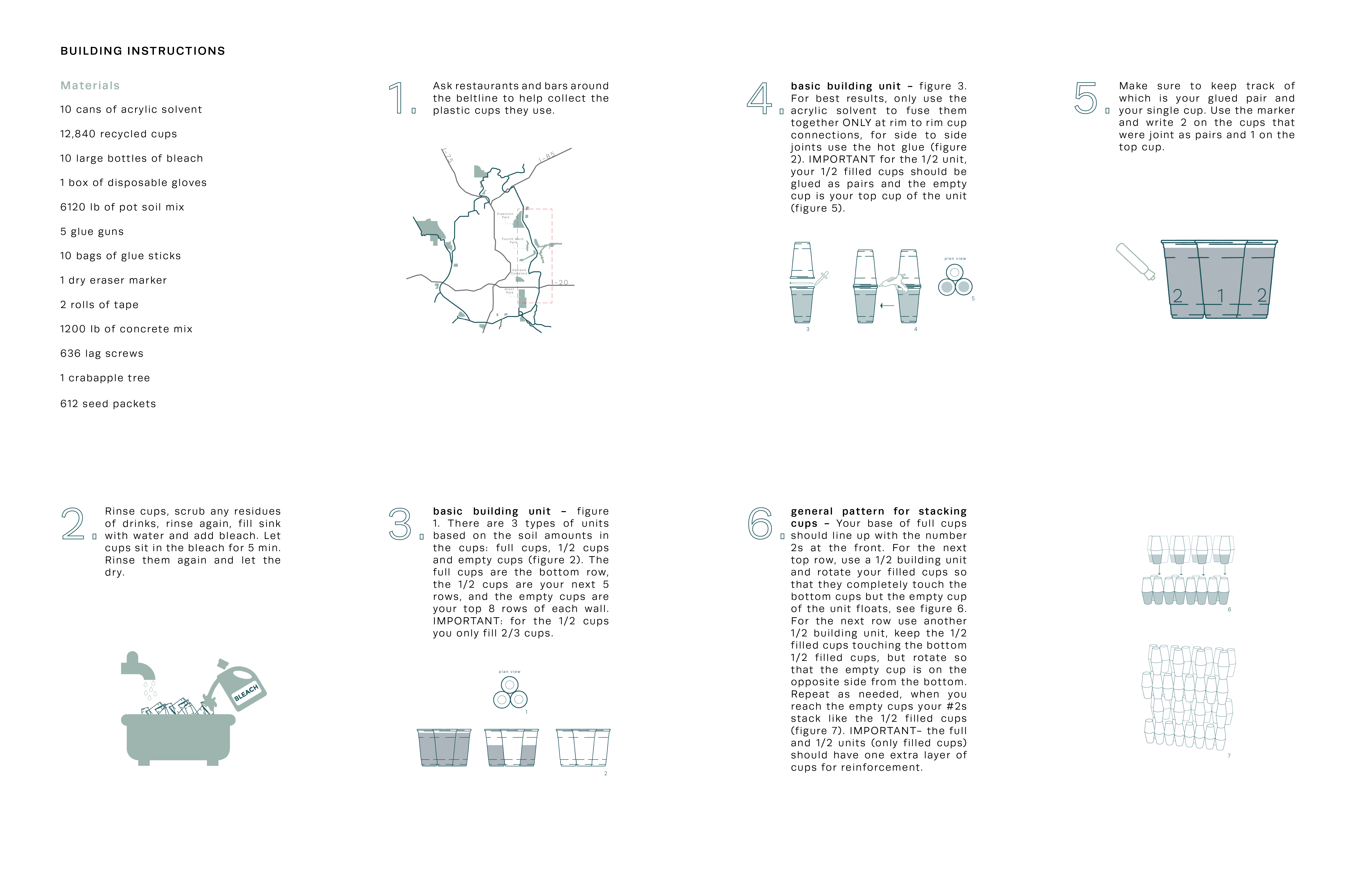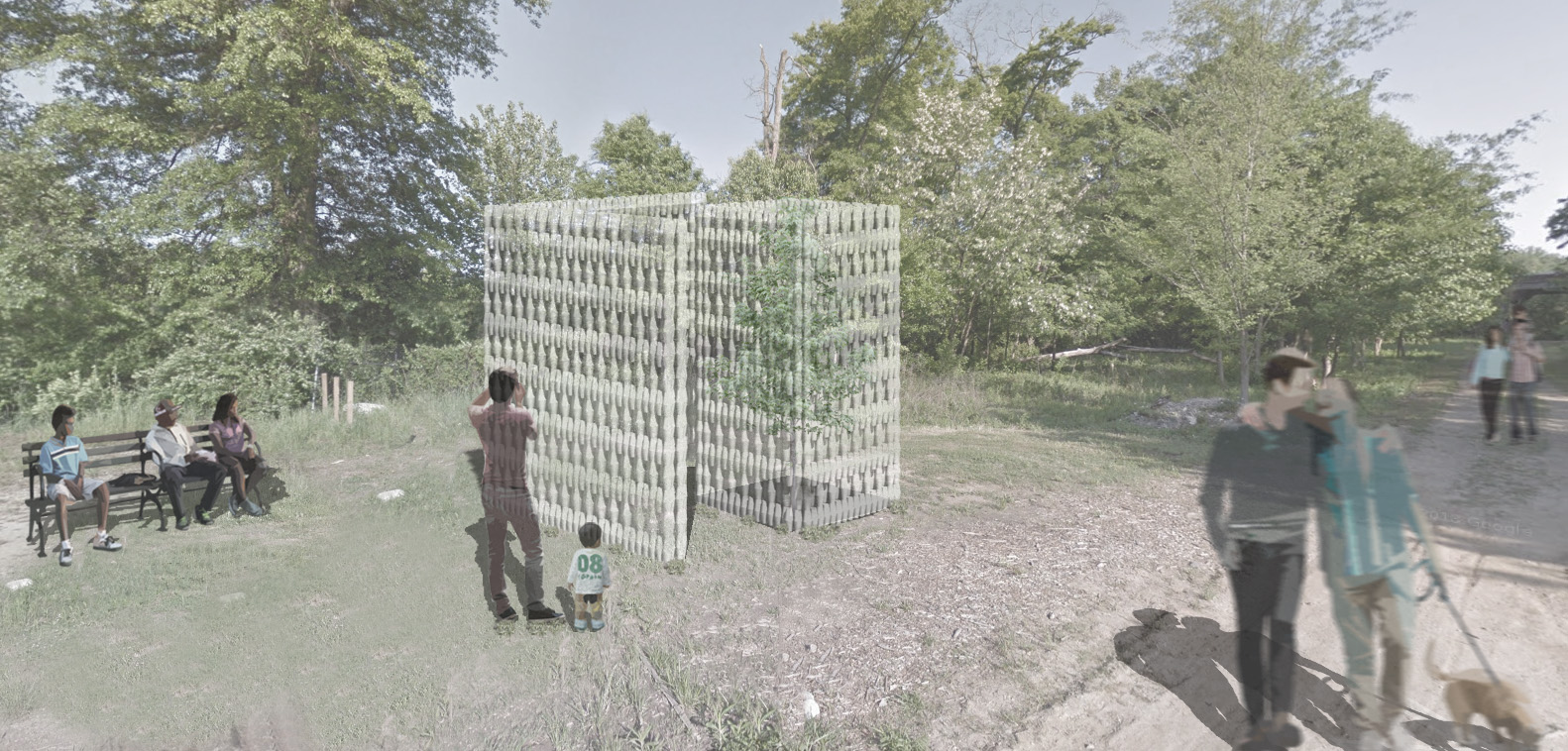OUR TRASH
Our Trash began as research project that explored plastic as a construction material. The material was sourced from Georgia Tech’s recycling facility, which revealed the large amount of plastic waste generated on campus. In 2019, Georgia Tech produced 24.57 tons of plastic that was source separated. That is approximately the weight of 6 elephants. However, the campus still produced 989.89 tons of single stream, which is mixed recycling containing plastic with other materials. This is the equivalent to the weight of 247 elephants. This also means that on average each student on campus created 73.76 pounds of trash. This data represents just a small portion of plastic consumed in Atlanta. When considering the amount of plastic consumed by the entire city of Atlanta, Fulton County or the state of Georgia, the numbers only become more alarming.
Plastic cups were used as a pavilion to raise awareness about the life of plastic. While it only takes 15 to 20 minutes to finish a 16 oz. drink served in a plastic cup, the cup itself will take roughly 500 years to decompose. We keep using plastic because of its practicality and because we do not see our trash accumulate overtime. This installation aims to spatialize our plastic trash, collected from different restaurants and bars of the Beltline. This will help people visualize the volume of our trash. The exhibit will live even after the showcase ends by gifting the cups that will turn into pots for the provided seeds.
90 SF
Location
Atlanta, GA
Professor
Debora Mesa
SPRING 2020
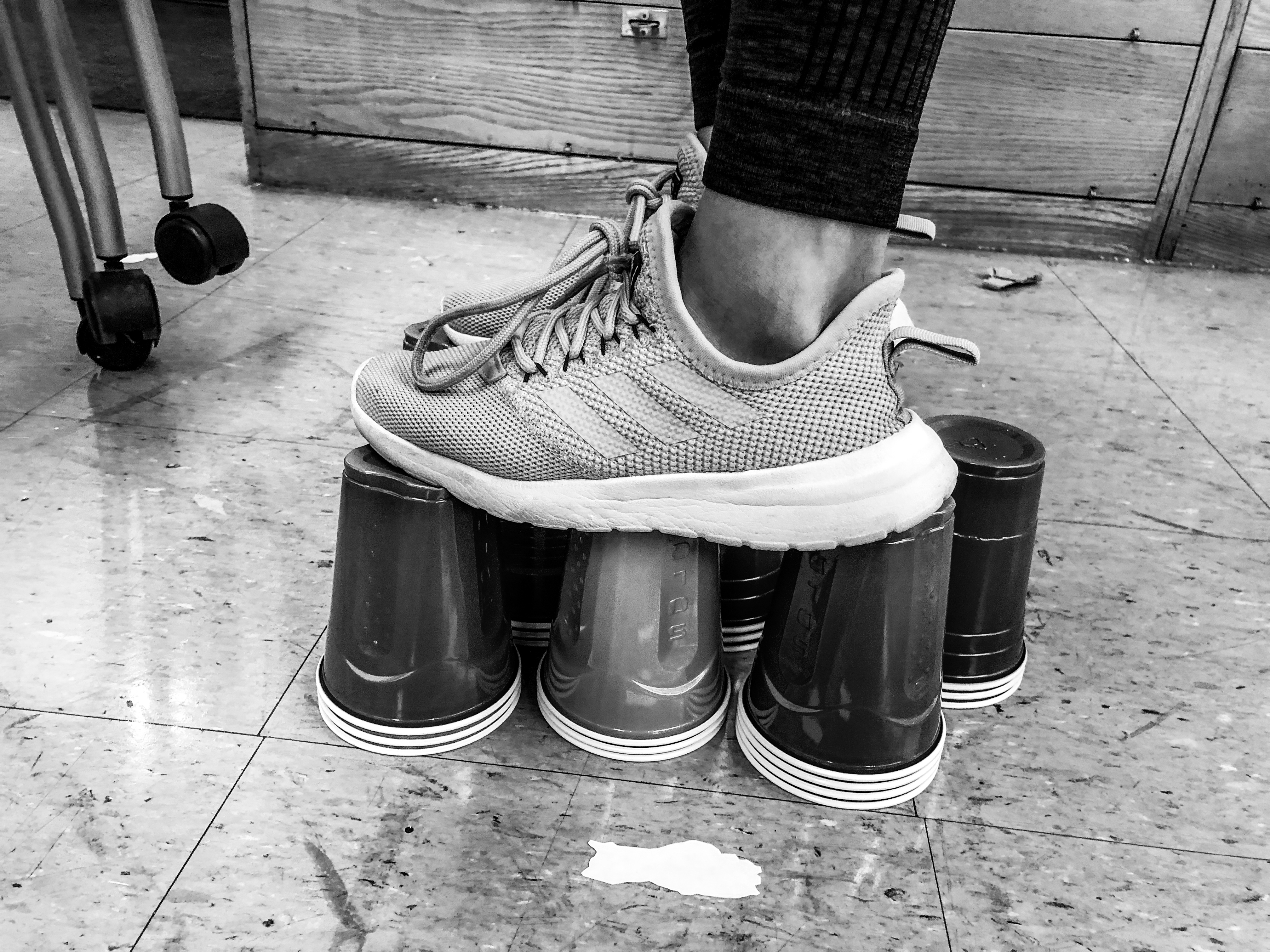
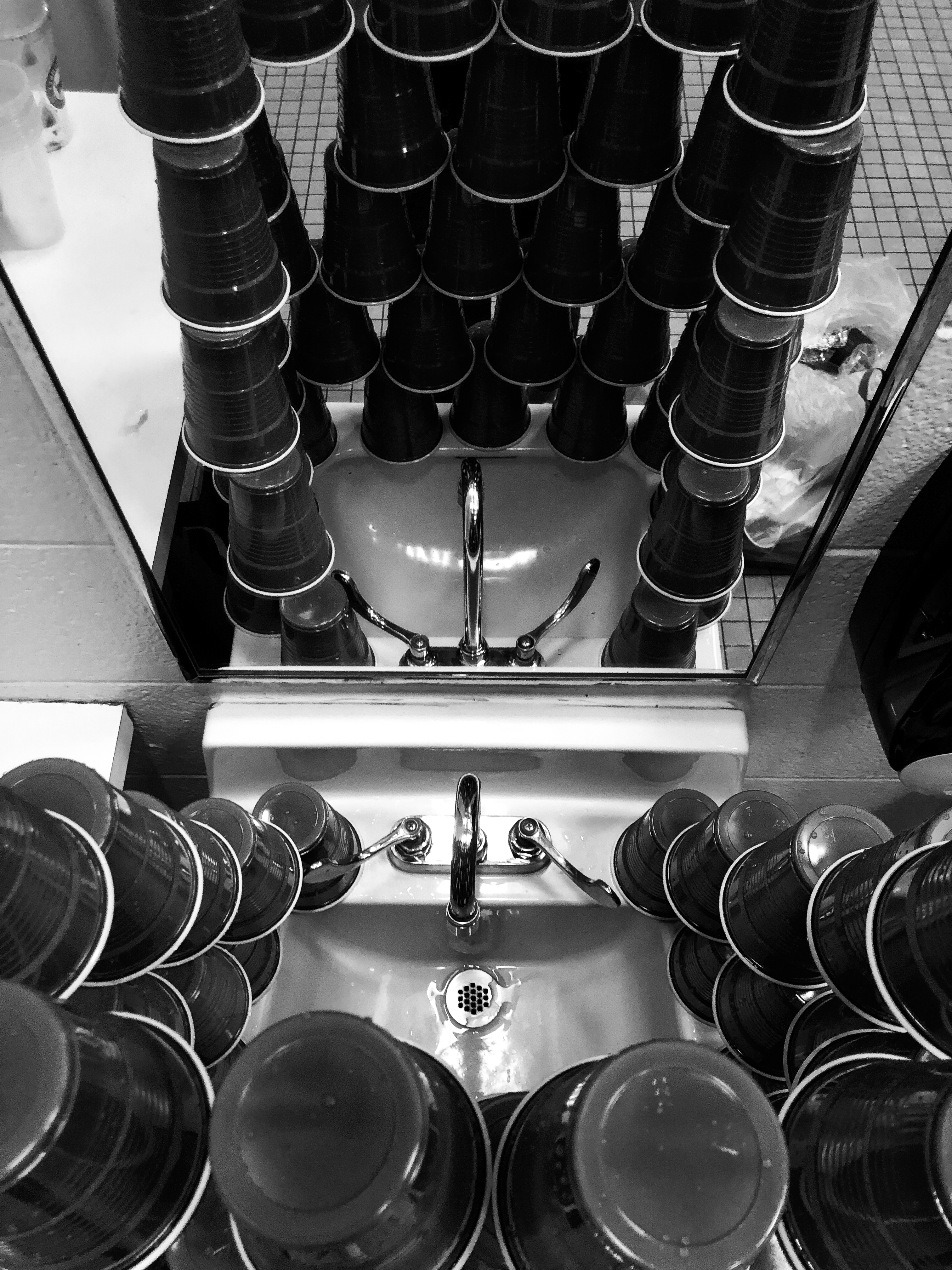



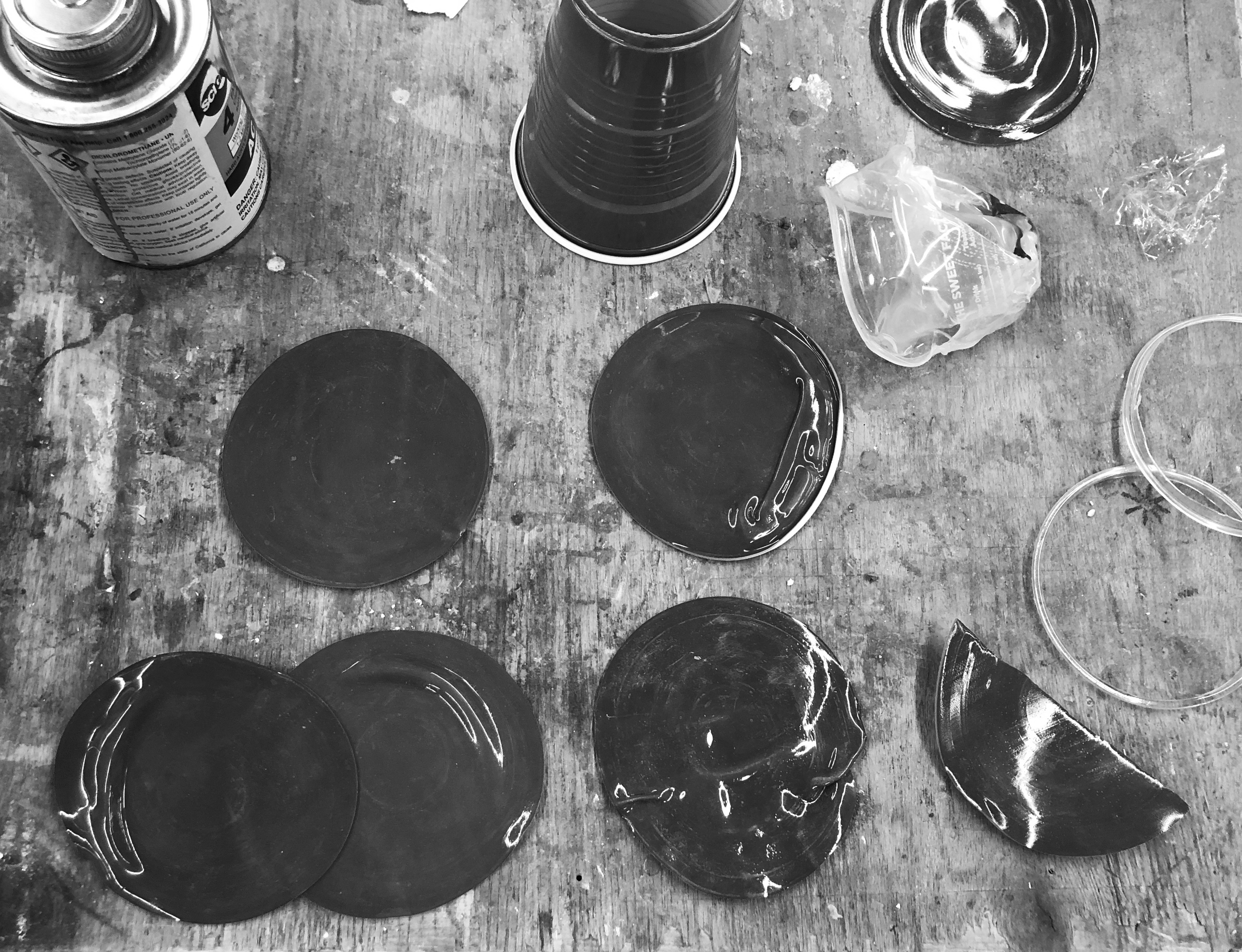
Chemical + Physical Limitations
Plastic cups were tested to find out its strength, malleability, and stackability. Each iteration tested revelead the limits and advantages of the shape and plastic composition.
Plastic cups were tested to find out its strength, malleability, and stackability. Each iteration tested revelead the limits and advantages of the shape and plastic composition.
